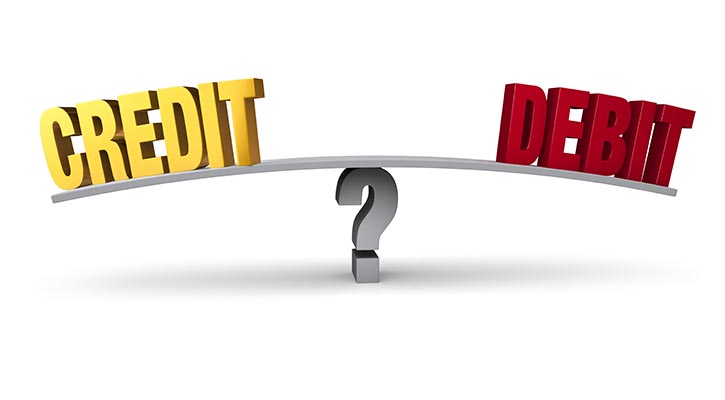
When you hear the words “put it on the card,” what do you think of? Credit cards or debit cards, or maybe both? For some, debit and credit cards are the same and they think that the terms can be used interchangeably. Although appearing very similar at a glance, there are some crucial differences between the two you should know to continue your credit education. Let’s take a look at some of these differences and why you might want to make your credit cards your primary form of plastic.
Debit Versus Credit
It’s always best to start with basics, so we will start from the foundation of what a credit card is versus a debit card.
A credit card is a payment method by which the funds for your purchases are available to you through a line a credit from a creditor (the credit card company). You must pay interest with credit cards, since you are borrowing the money you are spending.
A debit card is payment directly linked to your bank account, allowing for an easier method to utilize your funds than making withdrawals from the physical bank. These are your funds and do not go through a 3rd party. There is no interest with debit cards, as it is your own money.
The main important difference to remember when comparing debit and credit cards is to remember how the money is charged. When you use your debit card, the funds are taken from your account instantaneously with the transaction. This is true even if you utilize the “credit” payment option with your debit card, as the pending transaction will show on your account immediately and take 1-2 days to officially clear.
Credit cards utilize funds borrowed through the creditor, meaning you pay the bill for all expenses accumulated at the end of the billing cycle.
Why Credit Cards are the Better Cards
Security: According to The Fair Credit Billing Act, the most that you can be financially responsible for if your credit card is used fraudulently and without your authority is $50. If you report the card stolen or lost before any charges are made you are not held responsible. This same idea does NOT apply to debit cards. Assuming your bank finds that your case meets the requirements to be reimbursed, there is no set amount of time before your funds will be returned to you. This eventual return is, again, dependent on your situation meeting the specific requirements set by your bank regarding fraud.
Credit Score: While both debit and credit cards can be used to purchase items, only one can aid your credit score simultaneously. Since your credit score is linked to your credit worthiness, it is affected only by actions that directly relate to how you function with a loan or line of credit. Since a debit card is not either of these and is basically another way for you to withdraw cash from the bank, debit card transactions do not impact your credit score in a positive manner. However, smart spending with credit cards can raise your credit score while giving you some rewards.
The key here is to remember to pay the bill on time and in full, and not go too crazy with spending. If you utilize all the tricks in your arsenal, credit cards can be beneficial to your overall credit health while helping you make the purchases you need daily.




















